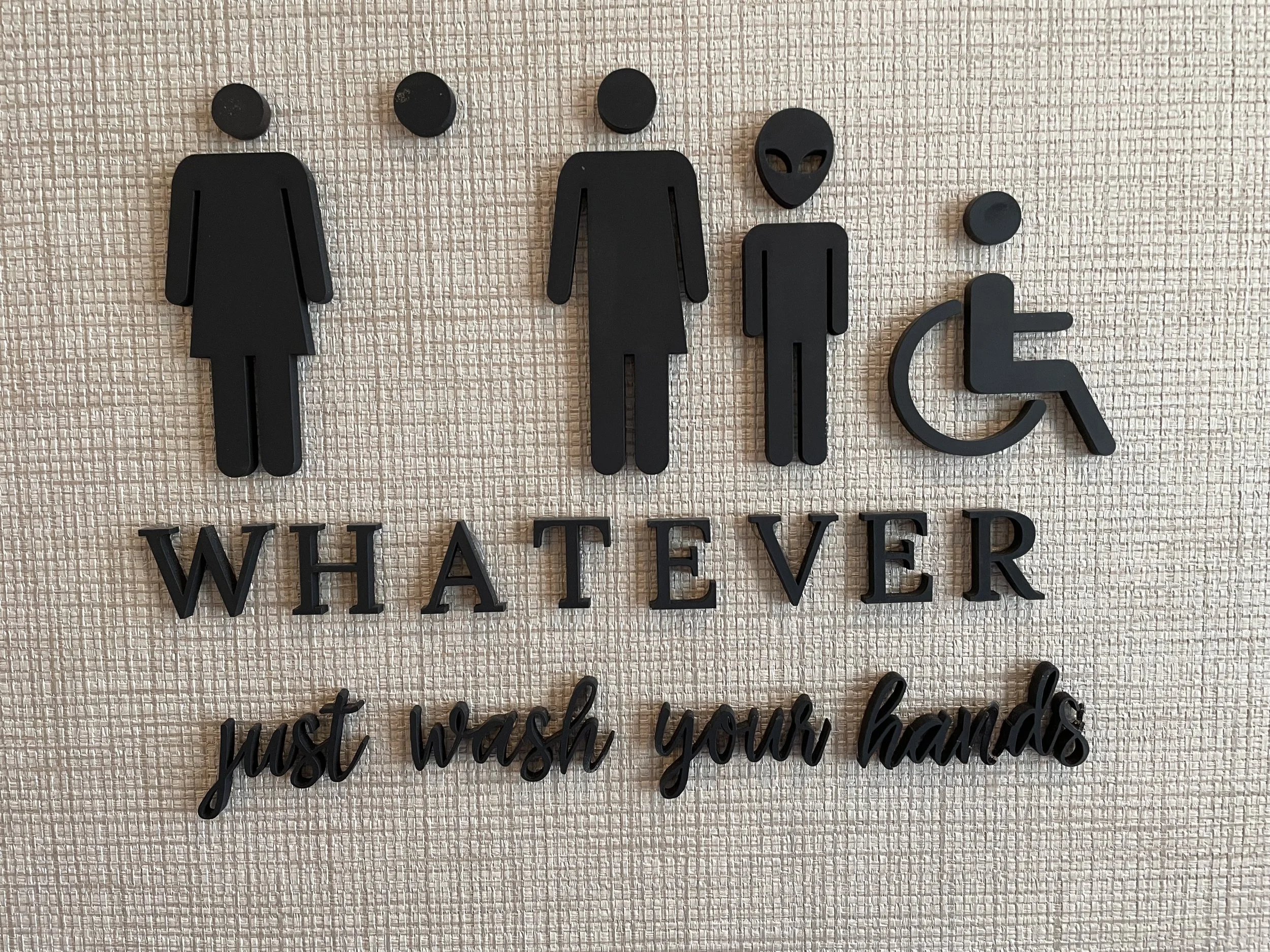Way back when, there was a time when National Public Radio was known for accurate, decent, cutting-edge religion stories.
But its most recent serious religion specialist, Tom Gjelten, retired last year. So that day is long gone, alas, judging from a mindless story about transgenderism and Christianity that came out this week, one completely lacking in terms of balance and serious research.
Now there are good ways to cover this divisive topic, with thoughtful voices on both sides of the debate. But the following story wasn't one of them.
PORTLAND, Ore.— Something as small as signs that say "men" and "women" on the bathrooms in a house of worship can shut the door to trans people.
"For me as a non-binary person, I've been to so many churches where they don't have a bathroom that I feel like I can use," says AJ Buckley, an Episcopal priest in Portland, Ore. "And so I'll just not go to the bathroom there."
Churches are tasked with living out the Bible's message both from the pulpit and in the pews. And it's hard to connect to spiritual concerns if people there to sing and pray literally can't be physically comfortable.
That's why Saint David of Wales Episcopal Church in Portland, where Buckley has been associate rector for the past year, has made changes like putting up signs that say anyone can use any bathroom, including pronouns on name tags and preaching to "siblings in Christ" rather than brothers and sisters.
What has been the result of this cultural innovation? Have more trans people flooded this church in southeast Portland?
We are not told, as the article switches to a Minneapolis man who co-founded QueerTheology.com who says the Bible has several passages transcending gender norms.
"We have women who are judges. We have men who spend their time in the kitchen. There are eunuchs, which were considered this kind of other third gender," he says.
His assertions go unquestioned, even though there’s quite a good argument that eunuchs weren’t by any means considered a third gender. Historians would note that this term pertains to men who can’t bear children because of castration (for a number of cultural reasons) or a birth defect or other reasons.
But that doesn’t fit the narrative this story weaves, so any dissenting view is left out.
I get it that NPR wants to do edgy “stories.” But there’s something out there called “journalism” that needs to be done, as well. Consider, for example, this fascinating story by their Istanbul correspondent on how Russian men are fleeing the draft and ending up in Turkey.
Instead, we get subheds like “Many Christians are rethinking the biblical stories they thought they already know,” without an ounce of proof that “many” Christians are indeed doing so.
The old Sodom-and-Gomorrah-tale-is-really-about-hospitality argument is a tired canard that is not supported by the text (has the reporter has read the original Genesis account?) but here it appears in this piece like it’s fresh catnip. That was trendy seminary territory decades ago and there are plenty of qualified academics around to can debate the details.
Actually, it’s unclear as to whether the writer bothered to do much reporting at all. She identified the Rev. Robyn Henderson-Espinoza as an “ordained Baptist minister” but it’s not clear who or what ordained her. After an Internet search, I learned she’d grown up in Southern Baptist circles but there’s not an SBC church on the planet that I can see ordaining this person.
I’m not denying that some Baptist congregation or think tank ordained Henderson-Espinoza, but I’d like to know where and what. Because the unsuspecting reader is led to believe that numerous Christians –- including mainstream Baptists –- are questioning the scriptures over gender identity, whereas the truth is that the writer cherrypicked a handful of people who’ve spoken or written on one side of this topic.
There are, of course, liberal Christians, when it comes to issues of theology and culture. Their views are worth covering as part of the big picture. However, they are not the only voices speaking on important issues linked to sexuality, marriage, families, etc.
Moving on, we encounter this paragraph:
Good narratives survive because they welcome a range of readers into their world. They don't define meaning — they reveal it for those who enter the story.
Who is saying this? The reporter?
Would you apply those sentences to books by J.R.R. Tolkien? C.S. Lewis? Dorothy Sayers? V.S. Naipaul? I’d say good narratives survive to the extent they reveal universal truths. If you want a range of readers, then stick to “Goodnight Moon.”
The article concludes with several quotes from a trans Lutheran theologian who says:
"Even though Genesis One talks about binaries in the world, we know that those binaries aren't as clean cut as they are in this one piece of writing."
It's not just man and woman, land and water.
"So for instance," he says, "God creates the day and the night — it says nothing about dawn or dusk."
What an idiotic leap in logic. Turn to Job 38:12 and you’ll get a nice mention of dawn.
In the past two years, we’ve seen many media organizations refuse to repeat assertions by Donald Trump or COVID deniers under the premise that journalists cannot uncritically repeat lies. OK. So why does an article like this — which uncritically repeats ridiculous assertions with no opposing point of view — get past an editor much less get on the radio?
You tell me. But for now, I won’t be trusting any snippets of NPR religion coverage until there is some evidence that journalists are, once again, steering that ship.
FIRST IMAGE: Photo by Julia Duin

